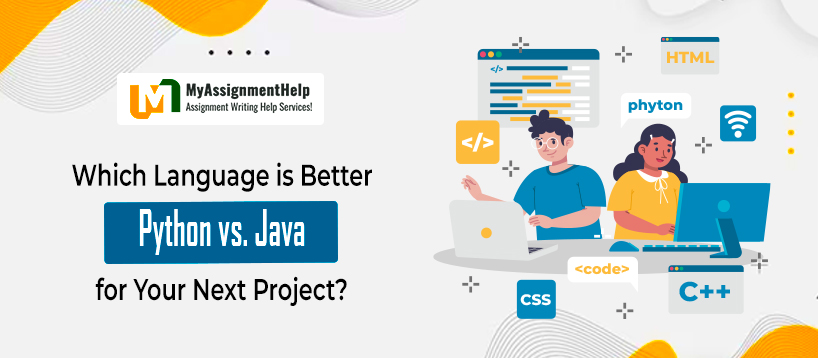When it comes to choosing the right programming language for your next project, there are a plethora of options available. However, two of the most popular and widely-used languages are Python and Java. Both languages have their own strengths and weaknesses, and deciding which one to use can be a daunting task. In this article, we will compare Python and Java and help you make an informed decision.

Python is a versatile and beginner-friendly language that has gained immense popularity over the years. Its simplicity and readability make it an ideal choice for beginners and those who prioritize ease of use. Python’s syntax is straightforward and resembles plain English, making it easier to write and understand code. If you are looking for Python assignment help online, you will find plenty of resources and a large community of Python enthusiasts ready to assist you.
On the other hand, Java is a powerful and widely-used language in the software development industry. It is known for its performance, scalability, and robustness. Java is often preferred for large-scale projects that require high-speed processing and excellent performance. If you are working on enterprise-level projects or want to build applications for Android, Java might be the better choice.
One of the key differences between Python and Java lies in their performance. Java is compiled into bytecode and executed by the Java Virtual Machine (JVM), which provides excellent performance and makes Java programs faster than interpreted languages like Python. However, with the introduction of Just-in-Time (JIT) compilation in recent Python versions, the performance gap has narrowed significantly, making Python a viable option for many applications.
When it comes to libraries and frameworks, Python has a significant advantage. Python has a vast ecosystem of libraries and frameworks, such as NumPy, Pandas, and TensorFlow, which make it the go-to language for data science, machine learning, and artificial intelligence projects. Python’s extensive library support and ease of integration make it highly efficient for rapid development. If your project requires working with data analysis or AI, Python is the obvious choice.
Java, on the other hand, has a strong presence in enterprise development. It has a mature ecosystem with frameworks like Spring, Hibernate, and Apache Struts, which are widely used in building robust and scalable applications. If you are working on server-side development or need to build large-scale enterprise applications, Java provides a solid foundation.
Another factor to consider is community support and the availability of assignment experts. Both Python and Java have large and active communities, but Python’s community is often regarded as more welcoming and beginner-friendly. If you are looking for Python assignment help online, you will find a plethora of resources and experts to assist you. Java also has a strong community, but Python’s community support is more extensive, especially for beginners.
In conclusion, choosing between Python and Java depends on your project requirements and personal preferences. Python is great for beginners, data analysis, and AI projects, thanks to its simplicity and extensive library support. Java is a powerful language for enterprise-level development and provides excellent performance. Consider the nature of your project, performance requirements, and the availability of assignment experts for both languages. Ultimately, the choice between Python and Java will depend on what you aim to achieve with your next project.





